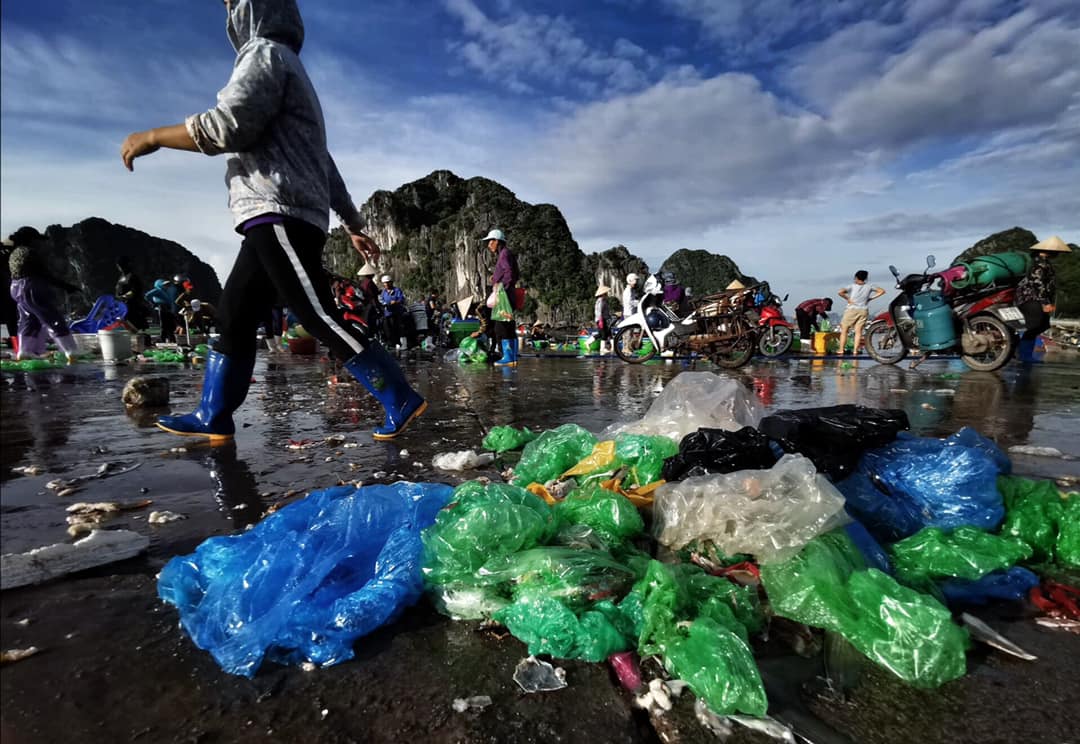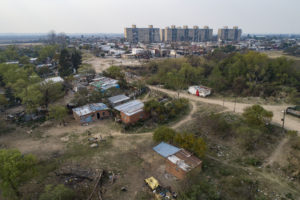A drainage canal is not a garbage landfill.
Why state the obvious?
Because, on the ground, they seem synonymous. Every day, their stench assails our nostrils.
Yet, we persistently treat our surroundings as a free-for-all garbage repository.
How many of our rivers and other water bodies have died or are dying?
In April 2018, a drainage canal in Hanoi’s Yen Hoa area was partially restored after a pile of garbage was fished out.
This included different types of untreated household waste and carcasses. After many years, the stench had become unbearable, but it was only after the media raised a stink that the authorities deployed sanitation workers to clean it.
But the dead and dying water systems in the capital city and elsewhere are not just the authorities’ responsibility. Anyone can see that a year after Hanoi’s campaign to prevent its rivers and streams from being choked to death by garbage- mainly To Lich, Nhue, and Đay rivers – such efforts are just a drop in the ocean. Every Hanoian is complicit in polluting the city’s environment, and the same can be said of localities nationwide.
Which also means that every Hanoian and every citizen of this country is responsible for cleaning up our rivers, our soil and the air we breathe.
A Hanoian who has lived all 38 years of her life along the Kim Nguu River, a distributary of the To Lich River, said that despite the daily effort of workers from Hanoi Sewerage and Drainage Limited Company (HSDC) to dredge out the garbage, many neighbours do not hesitate to dump their household waste in it.
The pollution is so severe that the river has stopped flowing and reeks of rubbish.
We can no longer afford to accept inane, comforting messages that say small actions make a big difference. We need big actions that make a huge difference.
Compare such crass indifference with the concern shown by someone like Gondai Shoichi, a Japanese national who is organising a volunteer group to collect garbage at different places in Hanoi including Van Mieu (Temple of Literature), Hoan Kiem (Return Sword) Lake, Thong Nhat Park and Thu Le Zoo. Gondai told Viet Nam News that the pollution of rivers and lakes in Hanoi was similar to that of Japan in the 1950s. He ticked off a few important points: garbage should be separated at source; environmental education should start very early; environmental regulations should be very strictly followed.
We need to go much further.
Beyond obedience to laws, every action that protects our environment should become second nature. This is the biggest lesson we need to learn from our Japanese brethren.
Wako Takatoshi, a Japanese expert in drainage and sewerage who has been working as a policy advisor on urban environment with Vietnam’s Construction Ministry for the last three years, said that removing garbage from rivers and lakes in Hanoi, as was done with the Yen Hoa canal, was very important, but by itself, it was not a sustainable measure.
The responsibility of individuals and agencies for maintaining different parts of rivers, canals and other water bodies has to be clear cut, and people’s awareness raised to a point that their habits change, he said.
Wako also offered a key psychological insight: “People can easily litter in a place that is dirty, but they tend not to do so when a place is very clean.”
UNLEARNING A FEW THINGS
According to the Hanoi Urban Environmental Hygiene Company in 2018, the capital city generates more than 6,200 tonnes of garbage each day. Only 70 per cent of this is collected and treated. The remaining 30 per cent is dumped into the environment, including our water systems.
Hoang Thao, who founded the Noi khong voi tui nylon (Say No to nylon bags) group, said many people dump garbage thinking they are being clean and doing their part for the environment.
“For example, they put nylon bags or plastic bottles into a waste basket and think that they are doing it right, but they are not. It takes dozens of years for the former and hundreds of years for the latter to decompose completely,” she said.
PRACTICAL PRACTICES
Wako, Gondai and Thao were participants at a workshop on “Clean Water for Healthy Living” organised last Sunday by the Japan-Vietnam JDS Specialist Network (JSN) and the US-based FHHER Social Impact Fund.
The workshop was organised at a coffee shop on Lieu Giai Street, with participants being advised to bring their own mugs in case the shop had no environmentally-friendly receptacles to offer.
Personally, the get-together, second in the JSN’s Coffee Talk Series, was an eye-opener that went beyond learning about safe water. Experts and environmental activists shared shocking information: Humans have created enough plastic to cover the eight largest country in the world – Argentina; Vietnam ranks fourth among top 20 countries in mismanaging plastic waste; globally, up to 91 per cent of the plastic isn’t recycled.
Every day, their stench assails our nostrils. Yet, we persistently treat our surroundings as a free-for-all garbage repository.
Ironies abound in the way “experts” attend workshops on environmental protection, despite the lavish lifestyles many of them lead, the means of travel they use, the amount of plastic used at such meets and so on.
#7 DAY CHALLENGE
As a nation, institution or individual, the biggest change starts with a single step.
One such step is the “#7 Day Challenge” launched on April 10, 2018 by the United Nations in Vietnam in collaboration with the Embassy of Sweden and the Live & Learn environmental education organisation.
The challenge encouraged people to practice ways of eating, moving and living without damaging the environment. It commemorated Earth Day which was ambitiously themed “End Plastic Pollution” in 2018.
Participants raised awareness by posting photos and stories of taking buses and bicycles to work, not using nylon bags or plastic cutlery, turning off all unnecessary bulbs.
Our leaders, like the Environment Minister, the President and the Prime Minister, can give this campaign a powerful push by accepting the challenge.
I hope to see this happen, but the question remains: Is this enough?
No.
We, as people, experts and politicians, are very fond of intoning the need for “drastic” measures, but fail to recognise that what is needed is a drastic, sustained change in our attitude and lifestyle, a change that cannot be postponed or passed on to others. The change starts with each one of us.
Nothing else will work.
More than a year after a hefty increase in fines for littering violations, there has been no appreciable improvement in the situation, not a dent in the magnitude of change that is needed.
We can no longer afford to accept inane, comforting messages that say small actions make a big difference. We need big actions that make a huge difference.
This commentary by Hồng Minh was originally published by Viet Nam news on April 13, 2018.
Vietnam is one of Asia’s five worst polluters of ocean with plastic waste, according to international organisations. This commentary by Hồng Minh was published together with an anecdote about a dying canal in Vietnam’s capital city, Hanoi, due to littering. The writer investigated the pollution of the city’s water system as well as other parts of the country. The writer also met and talked to experts and activists dealing with the problem and had some suggestions on how to help prevent and reduce waste, especially plastic waste. The piece was then widely shared among sanitation and plastic waste experts as well as environmental groups. The problem of illegal littering and untreated plastic waste has become so alarming that the Prime Minister of Vietnam, Nguyen Xuan Phuc, launched a national campaign on June 9 to prevent plastic waste with the target to rid Vietnam of single use plastic products by the year 2025. Viet Nam News has been running a series of articles, news, opinions regarding the problem in the country as well as measures to reduce the consequences.




